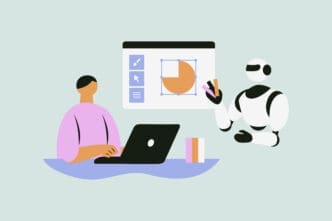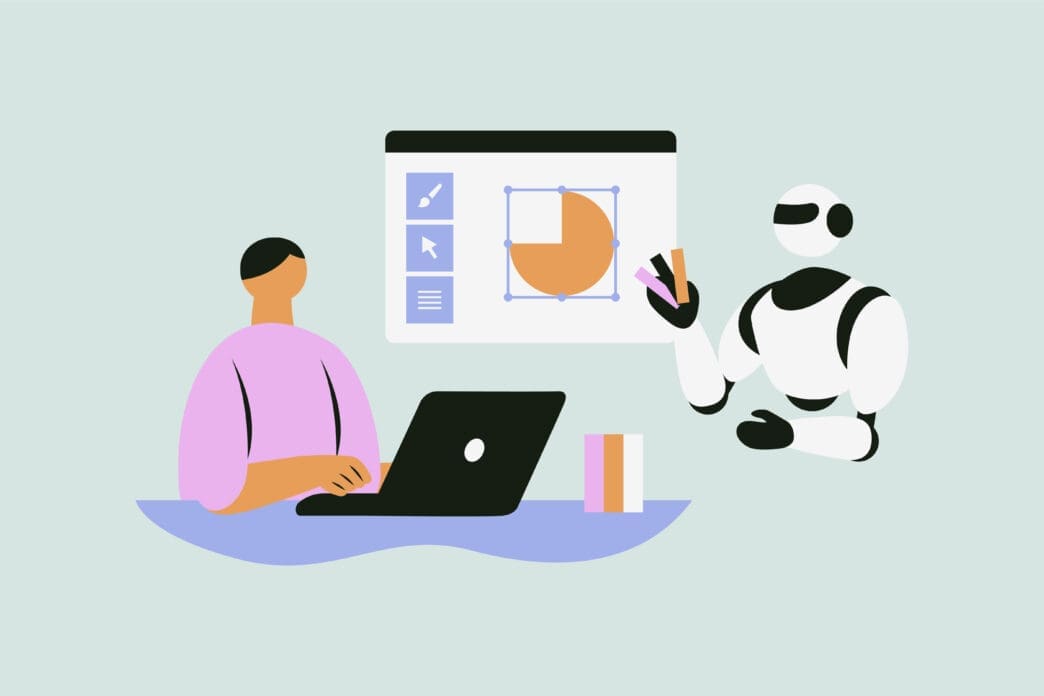As 2025 dawns, the world of project management is undergoing its most significant transformation in a generation, driven by the pervasive integration of artificial intelligence. For businesses and team leaders globally, AI is no longer a futuristic concept but a critical, hands-on tool that automates tedious tasks, predicts project risks with startling accuracy, and optimizes resource allocation to prevent burnout and boost efficiency. This shift is a direct response to the persistent challenges of project delays and budget overruns, with platforms like ClickUp, Asana, and Monday.com now embedding sophisticated AI to empower project managers, not replace them, turning data into decisive action and fundamentally changing how projects are delivered on time and within scope.
The Evolution of Project Management: From Gantt Charts to Generative AI
Project management as a formal discipline has always been about bringing order to chaos. For decades, the Gantt chart, a visual timeline of tasks, was the pinnacle of this effort, providing a clear, albeit static, view of a project’s lifecycle. This was followed by methodologies like Agile and Scrum, which introduced flexibility and iterative progress, acknowledging that projects rarely follow a perfectly linear path.
These methods, however, still relied heavily on manual input, human intuition, and countless hours spent in status meetings. The project manager was the central processing unit, manually tracking progress, reallocating resources when someone fell ill, and adjusting timelines based on gut feelings and past experiences. This manual approach was often prone to human error, cognitive biases, and communication breakdowns.
The arrival of AI marks a new paradigm. Instead of being a passive tool for visualization, modern project management software is becoming an active participant in the project itself. It leverages machine learning algorithms to analyze vast datasets from past and current projects, identifying patterns and making predictions that are beyond human capacity. This represents a move from reactive problem-solving to proactive, data-driven optimization.
Generative AI, the technology powering tools like ChatGPT, has further accelerated this shift. It can now draft initial project plans, create user stories, summarize lengthy comment threads, and even generate status reports in plain language. This frees up project teams to focus on higher-value activities like strategic planning, creative problem-solving, and stakeholder engagement—tasks that require uniquely human skills.
Key AI Features Revolutionizing Project Management
When evaluating modern project management tools, it’s crucial to look beyond the traditional features of task lists and calendars. The real value now lies in specific AI-powered capabilities that drive efficiency and insight. These are the core features that separate the next-generation platforms from their predecessors.
Predictive Analytics and Risk Assessment
Perhaps the most powerful application of AI in this space is its ability to forecast the future. These systems analyze historical project data, current team velocity, and task dependencies to predict project completion dates with greater accuracy. More importantly, they act as an early warning system, flagging tasks that are at high risk of delay or identifying potential budget overruns before they become critical issues.
Intelligent Task Automation and Scheduling
AI excels at handling the repetitive, administrative work that consumes a significant portion of a project manager’s day. This includes automatically assigning tasks to the best-suited team member based on their current workload and skillset. It can also intelligently reschedule dependent tasks when a preceding task is delayed, instantly updating the entire project timeline without manual intervention.
Resource Optimization
Effective resource management is the bedrock of successful project delivery. AI algorithms can analyze team capacity, individual skills, and even time-off calendars to suggest the optimal allocation of personnel. This ensures that no single team member is overloaded while others are underutilized, helping to prevent burnout and maintain a sustainable pace of work.
Enhanced Communication and Reporting
AI is streamlining project communication by automating the creation of essential documents. It can generate concise daily or weekly progress reports for stakeholders, transcribe and summarize project meetings, and pull key decisions from long Slack or email threads. This ensures everyone is aligned without having to sift through mountains of information manually.
Generative AI for Project Planning
The initial phase of a project—brainstorming and planning—can now be supercharged with generative AI. Teams can use natural language prompts to ask the AI to create a work breakdown structure for a new software feature, draft a risk management plan, or generate ideas for marketing campaign tasks. This serves as a powerful starting point, saving hours of initial setup time.
The Top AI Project Management Platforms for 2025
The market is crowded with tools claiming AI capabilities, but a few platforms have emerged as clear leaders, offering deeply integrated and genuinely useful artificial intelligence features.
ClickUp
ClickUp has positioned itself as the “one app to replace them all,” and its AI offering, ClickUp Brain, reinforces that mission. It acts as a central intelligence layer across the entire platform. Its AI is particularly adept at generating project-specific content, from task lists based on a simple prompt to comprehensive project briefs.
A key strength is its ability to summarize long comment threads and complex documents, providing quick insights without requiring users to read everything. ClickUp’s AI can also write and edit content directly within tasks and documents, making it a powerful assistant for teams that produce a lot of written deliverables. Its versatility makes it suitable for tech startups and large enterprises alike, though its vast feature set can present a learning curve for new teams.
Asana
Asana’s approach to AI, branded as Asana Intelligence, focuses on clarity and strategic alignment. It aims to cut through the noise of daily work to help teams focus on what matters most. Its “Smart fields” can automatically analyze project data to surface insights, such as identifying the root cause of bottlenecks or suggesting ways to improve workflow efficiency.
Where Asana shines is in goal-setting and progress tracking. Its AI helps align day-to-day tasks with overarching company objectives, providing a clear line of sight from individual contributions to strategic goals. The AI-powered workflow builder also makes it exceptionally easy to automate multi-step processes, making it a favorite for marketing, operations, and product teams that thrive on structured, repeatable workflows.
Monday.com
Known for its highly visual and customizable interface, Monday.com has integrated Monday AI Assistant to enhance its core strengths. The AI is a powerful automation engine, capable of building complex “if-this-then-that” recipes with simple natural language commands. For example, a user could ask it to “When a task status changes to ‘Done,’ notify the client via email and archive the task.”
Monday.com’s AI also excels at data analysis and content generation within its flexible board structure. It can help users build complex formulas, generate reports, and even compose emails directly from the platform. Its visual appeal and ease of use make it an excellent choice for teams who prefer a more intuitive, less rigid project management environment.
Wrike
Wrike targets larger teams and enterprises with a focus on robust, scalable project management, and its AI features reflect this. Wrike’s AI is particularly strong in the area of predictive risk management. It uses machine learning to analyze project data and proactively warns managers of potential delays, providing a percentage-based risk score for projects and tasks.
Furthermore, its “Work Intelligence” features include smart replies for comments and document processing, using optical character recognition (OCR) to extract text from images and PDFs. For organizations with stringent security and compliance needs, Wrike’s enterprise-grade platform combined with its intelligent automation provides a secure and powerful solution.
Notion
While not strictly a project management tool in the traditional sense, Notion has become a dominant force in the space due to its incredible flexibility. With the integration of Notion AI, it has become a formidable contender. Notion AI acts as a “thought partner,” capable of brainstorming ideas, drafting documents, summarizing notes, and organizing information within its interconnected database and page structure.
Teams use Notion to build custom project management systems from the ground up, and Notion AI supercharges this process. It can instantly translate meeting notes into actionable tasks with assignees and due dates, or create a complete project timeline from a simple outline. It is the ideal tool for knowledge-centric teams that require a blend of project management, documentation, and a collaborative wiki.
How to Choose the Right AI Project Management Tool for Your Business
Selecting the right platform requires a strategic approach that goes beyond comparing feature lists. The best tool is the one that aligns most closely with your team’s unique culture, workflow, and technical ecosystem.
Assess Your Team’s Needs and Workflow
First, analyze how your team currently works. Are you a creative agency that needs visual boards and client collaboration features? A software development team that lives by Agile sprints and needs deep integration with code repositories? Or an operations team that relies on complex, automated workflows? The answer will guide you toward a tool like Monday.com for visual workflows, Asana for goal alignment, or Wrike for enterprise-scale control.
Evaluate Integration Capabilities
No project management tool exists in a vacuum. It must seamlessly connect with the other applications your team uses every day, such as Slack, Microsoft Teams, GitHub, Google Drive, and Salesforce. Before committing, verify that the platform offers robust, native integrations with your critical software stack to avoid creating information silos.
Consider Scalability and Security
Think about where your business will be in one, three, or five years. A tool that works for a team of ten may not be suitable for a company of one hundred. Evaluate the platform’s ability to scale with your growth. For larger organizations or those in regulated industries, security features, data governance policies, and compliance certifications are non-negotiable.
Start with a Pilot Program
Instead of a company-wide rollout, identify a single, tech-savvy team to pilot a new tool on a real project. This allows you to gather authentic feedback, identify potential challenges, and build a case for broader adoption. A successful pilot program creates internal champions who can help train and onboard other teams, ensuring a much smoother transition.
The Future Outlook: The Augmented Project Manager
The rise of AI has led to speculation about the “autonomous project manager”—a system that could one day run projects entirely on its own. While the technology is advancing rapidly, this vision misses the point of its true value. AI is not poised to replace the human project manager but to augment their capabilities, creating a powerful human-machine partnership.
AI will handle the quantitative, administrative, and predictive aspects of project management with superhuman speed and accuracy. This will free up human leaders to focus on the qualitative, strategic, and interpersonal elements where they excel. This includes mentoring team members, negotiating with stakeholders, fostering a creative and collaborative culture, and making nuanced judgment calls when the data is ambiguous. The future project manager will be less of a taskmaster and more of a strategic leader, coach, and visionary, guided by the powerful insights of their AI partner.
Ultimately, the integration of AI into project management tools is about elevating human potential. By automating the mundane and illuminating the complex, these platforms empower teams to build better products, launch more successful campaigns, and achieve their goals faster and more effectively than ever before. The organizations that embrace this new reality will be the ones that lead their industries in the years to come.








